1900 (1976)
Directed by: Bernardo Bertolucci
Written by: Bernardo Bertolucci, Franco Arcalli, Giuseppe Bertolucci
Starring: Dominique Sanda, Donald Sutherland, Gérard Depardieu, Robert De Niro
AKA NOVECENTO
Italy/France/ West Germany
AVAILABLE ON BLU-RAY: 18TH APRIL, from EUREKA ENTERTAINMENT
RUNNING TIME: 315 min
REVIEWED BY: Dr Lenera, Official HCF Critic
Born on the day of the death of renowned composer Giuseppe Verdi – 27 January 1901 – Alfredo Berlinghieri and Olmo Dalcò come from opposite ends of the social spectrum. Alfredo is from a family of landowners led by his grandfather, also called Alfredo, while Olmo is an illegitimate peasant. Olmo’s grandfather, Leo, is the foreman and peasants’ strong man who verbally and spiritually carries out a duel of wits with grandfather Alfredo. Young Alfredo despises the falseness of his family, in particular his weak but abusive and cynical father Giovanni, and he and Olmo, who is being raised as a socialist, become friends throughout their childhood, despite the social differences of their families. However, when their fathers die, the estate where they grew up is quickly overtaken by unrest and consequently violence as Italy begins to undergo major changes….
My first encounter with 1900 was around the late 1980’s where I switched on the TV late one night and was confronted with the sight of Donald Sutherland and some woman in a room with a small boy. They seemed to have raped the boy, and then Sutherland picked him up by his legs, swung him round and round and bashed him to death on the walls of the room. I was horrified by what I’d seen but felt compelled to watch some more, though sadly I soon fell asleep, which was no reflection on the quality of the film. I later borrowed a video recording of the TV showing and was truly spellbound by large parts of the picture. About as epic as they come, Bernardo Bertolucci’s five hour-plus chronicle is in many ways very strange; it combines lengthy sequences of great beauty with moments of considerable ugliness, and it does feel like a 315 min. advertisement for the Italian Communist party at times, but, even if Bertolucci’s storytelling falters in places, it’s still a remarkable achievement that for me – and I’ve seen it four times now – never outstays its welcome despite its unholy length except for towards the end. I watched Eureka’s Blu-ray with a lengthy break in the middle to get dinner and do various other duties, something I recommend. It also features some totally stunning cinematography, courtesy of Vittorio Storaro whose crowning achievement this must be.
Bertolucci originally planned it to be a TV series before deciding it belonged on the big screen. Though filmed in Italy, its $6.5 million budget was supplied by United Artists, Paramount and 20th Century Fox. It was a huge production employing over 12,000 extras and the budget ended up escalating to $10 million, while reshoots meant that overall the movie spent 14 months in production. Producer Alberto Grimaldi was contractually obliged to deliver a film no longer than 195 min, but Bertolucci’s cut was 317 min. Bertolucci wanted to release 1900’s two parts seperately, but Grimaldi refused, then locked Bertolucci out of the editing room and assembled a 180 min. cut. Bertolucci decided to compromise and edited a 255 min version for release outside of Italy. Aside from two bits involving wine and a dance sequence, few scenes were totally removed, Bertolucci instead opting to shorten many scenes, often through re-editing which made some bits feel very different, even removing some great camera movements as beginnings and ends were often missing. Notable shortenings included Attila’s opening speech and Olmo’s concluding speech, plus most of the sexual and violent material to get an ‘R’ rating. The film was something of a flop and got mixed notices. Donald Sutherland was so upset after seeing his own performance as the horrible Atilla that he was unable to watch the film for years. The late 80’s Channel 4 version was basically the 315 min. cut with censor trims, the totally full cut not seen outside Italy until 1991.
The last time I watched 1900, my DVD was missing some of the opening credit sequence of the titles occurring over a painting [Giuseppe Pellizza da Volpedo’s The Fourth Estate] of a man with the camera panning out to reveal a whole army, but it’s the proper length on Eureka’s Blu-ray. Ennio Morricone’s title piece is magnificent, a truly hummable theme in two parts, both of which rather appropriately could be a national anthem. The film begins on 25 April, 1945, Liberation Day, and we follow a young boy walking through the woods singing a happy song before being shot dead by a soldier saying: “the war is over”. The peasants gather up arms to get rid of the landowners, and chase a middle aged man, whom we recognise as Sutherland, and his wife, and stab them with pitchforks. It’s a clever bit of story telling because, while we will later on hate the pair, we feel sorry for the brutalised couple here and don’t like seeing them being treated as such. Then, in a manner like Once Upon A Time In America [in fact the parallels between the two films are quite considerable, and if you like that film then you’ll probably like this one], we flash back to the beginning of the story, in this case 1901, with a drunken hunchback in the guise of a minstrel proclaiming that Verdi is dead. The tension between the landowners and the workers is then brilliantly introduced by a scene in which grandfather Alfredo goes into the fields and gives all his workers a bottle of wine to celebrate the birth of his grandson, but the workers find it an insult and refuse to drink, with even his opposite number, Leo the foreman, pretending to refuse at first.
The next one and a half hours or so are absolutely magnificent and contain some of the most gorgeous shots ever put on film, Storaro giving us beautiful image after beautiful image like great paintings in what is perhaps the greatest evocation [and that includes Picnic at Hanging Rock] of a ‘lost summer’ feel on film. The camera slowly glides around, taking everything in, often from a crane, while lingering on, for example, Olmo bathed in sunlight like an angel as he stands on top of a table, or, perhaps most notably, a dance in the woods where the sun makes the tree trunks look virtually translucent. In these days of digital technology allowing us to easily put whatever images we like on film, it’s hard to appreciate the painstaking work in achieving something like this. The same wood later looks eerie, but still gorgeous, much later in a dreamlike winter scene when Olmo meets Alfredo’s wife Ada riding a white horse. However, as I said earlier, as well as beauty there’s ugliness, and we soon get a very uncomfortable moment, where at one point it looks like the old man is going to rape the poor girl, when elderly Alfredo, who has decided to die, gets a child to fondle him. Far more than Bertolucci’s previous film Last Tango In Paris which got notoriety for its supposedly salacious content but which is really quite tame compared to 1900, this film is full of often graphic carnality, some of it healthy, and some of it not, as we are shown the sexuality of most of the key characters. The viewer is even treated to a shot [missing from some earlier versions] of the erect penises of Robert De Niro and Gerald Depardieu as a woman ‘plays’ with them both at the same time, while young Olmo playing with his semi-erect member would probably land Bertolucci in jail if the film came out today. Along with some moments of really brutal violence [effects by Lucio Fulci fav. Giannetto De Rossi], this is one film that still fully deserves its ‘18’ rating.
The story jumps forward at times as it takes place in four different time periods, each filmed by Bertolucci during a different season, so the colour palette of the film gets starker and even becomes virtually black and white as things get progressively darker. We follow Alfredo and Olmo on their respective romances, which sometimes have an odd, quirky element to them, from Olmo kissing Anita on the first second he meets her to Ada pretending she’s blind at a party, but then turn sour while the relationship between the landowners and the workers gets worse and worse. Amidst all this unrest rises fascism, and it’s here where 1900 gets a little unbalanced. Sutherland’s villainous Attila is a truly evil, depraved creation, and the actor is unsettling in the role, especially whenever he cracks his wicked grin, but the character is very over the top [in fact Attila’s wife Regina is more complex and even interesting] and reveals the simplistic nature of the film’s rather black and white political commentary where fascists are nothing but pure evil, industrialists [there’s a theme about the negative encroachment of technological ‘progress’] and the upper classes aren’t much better, and socialists and communists are the good guys [I wonder if this is one of Jeremy Corbyn’s favourite films?]. It’s probably hard for many modern viewers to imagine a time when communism actually seemed ‘cool’ to many.
The second part of 1900 spends a bit too much time on Alfredo’s love life and not enough on some of the things that happen to Olmo, while there are quite a few scenes which seem irrelevant, though these do sometimes provide some humour [this isn’t really an especially heavy-going film], like a memorable drug scene where Alfredo says he can’t feel anything after having taken cocaine but is most definitely behaving in a silly manner. I did wonder if Olmo and Alfredo’s visit to a prostitute was there to partly show how Alfredo can’t stop himself from showing the nature of his class [he exploits the woman due to differences in class/wealth], as well as to strengthen the suggestions of a homo-erotic [and it’s interesting too that the one wealthy person shown with complete fondness is homosexual] tension between Alfredo and Olmo. There’s also rather a lot of animal cruelty, including Attila killing a cat which is obviously fake when it’s being killed but which we can see struggling to get lose from being tied up [Sutherland was injured by the nail used to suspend the fake cat], and a duck hunt where the ducks seem more than a trifle depressed, though I rather liked a long sequence that goes through the process of slaughtering a pig in order to make food out of it. We see every part: the animal being hung up, the hooves being cut off, the belly opened, the organs removed, Bertolucci having the honesty to show the process that is often hidden from us consumers. You do, though, also see a horse’s crack being massaged so it shits lots. Despite all this, 1900, even if never quite matches the brilliance of its first third, is still thoroughly engrossing and doesn’t drag at all until its final section which does stretch out the ‘victory’ too much and really overdoes the flag waving.
Though playing a ‘nothing’ of a character who represents the complacency of the upper classes, De Niro seems a little uneasy amongst a cast full of Italians, French and American actors who were used to working outside of the US, but Depardieu is terrific throughout despite being dubbed on both the Italian and English language versions [though the actor doing his voice on the English track does sound a bit like Depardieu]. For me Sterling Hayden has some of the best scenes as Leo; his poignant death is especially memorable. What with some cast members speaking English and some not, and with some of them doing their own dubbing but some being dubbed by others, neither version [both are included on the Blu-ray] is totally satisfactory. I slightly prefer the Italian version because at least everybody sounds Italian in it; for me the distinctive American or Canadian accents of Sutherland, Hayden and Burt Lancaster stick out. Morricone’s score deserves to be ranked amongst his very best. He provides four or five wonderful themes, [this is the kind of film where part of the enjoyment of watching is waiting to hear a particular theme again], as well as lots of that astringent scoring he does so well. His piano-led theme for Ada is an especially brilliant creation musically evoking the character’s uncertainty [the tune seems like it can go anywhere] and tragedy. Bertolucci reckons he was mad to make 1900, and he was probably right. Such a project would probably never even get past script stage today, but I can’t help feeling that the latter is a shame. 1900, though often messy, remains a shining light from that period where major studios were willing to throw money at seriously crazy, ambitious, vanity projects and let the director do what he wanted. And that photography! Even as I type, I can’t get some of those gorgeous images out of my head.
Reportedly the Region ‘A’ Blu-ray from Olive Films, whilst an improvement on the DVDs,was less than stellar. I can’t say that about Eureka’s restoration which is virtually faultless. Whilst always a visually stunning film, I now feel that I have only fully appreciated the film’s pictorial qualities this time around. The Italian version is a little quieter but sounds just a bit smoother and will be my track of choice in future. Eureka don’t give us the Bertolucci documentary from the Olive release but do provide the Bertolucci and Storaro interviews from the DVD and add a very interesting on-set documentary.
SPECIAL FEATURES
*1080p high-definition transfer
*English and Italian uncompressed PCM soundtracks
*English subtitles for the deaf and hard-of-hearing for the English audio
*English subtitles for the Italian audio
*’The Story, The Cast’ and ‘Creating an Epic’ – Two video pieces from 2006 featuring Bertolucci and Storaro
*’Bertolucci secondo il cinema’ – An hour-long on-set documentary about the making of 1900
*PLUS: A booklet featuring the words of Bernado Bertolucci, archival imagery, and more!

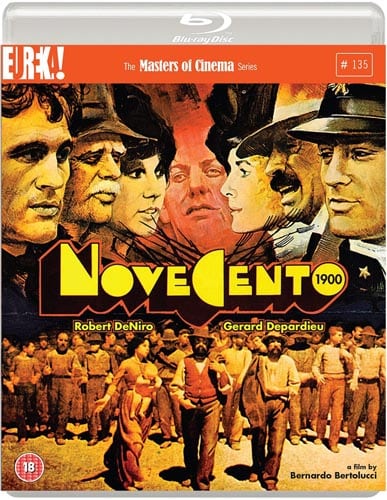
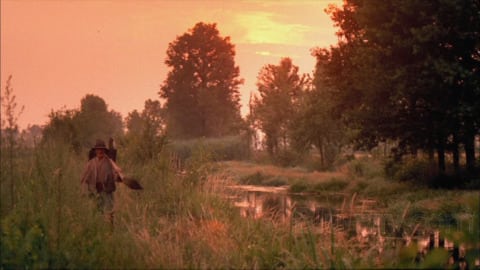
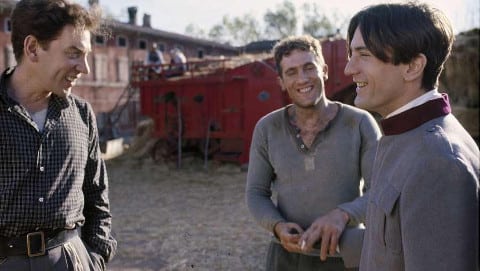




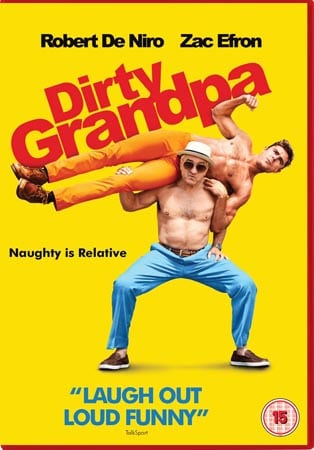
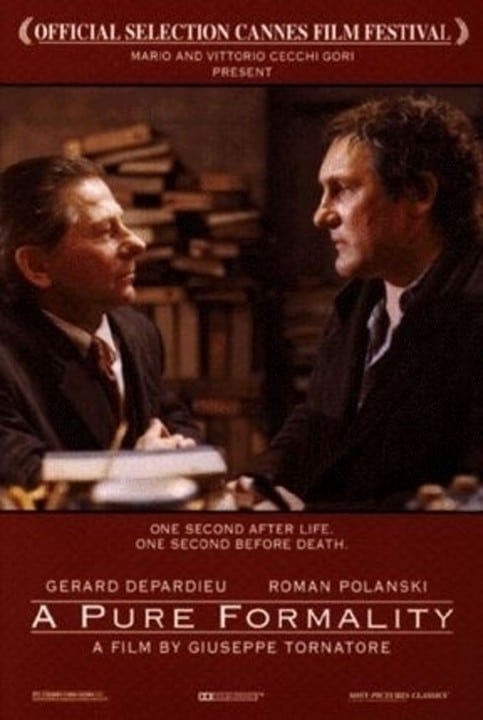

Be the first to comment